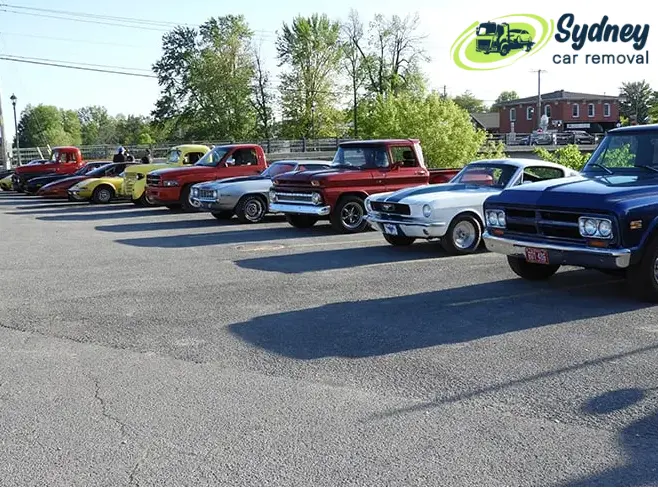Car meets are not illegal; it’s certain activities at these events that can cross legal boundaries. Large gatherings in public spaces are generally lawful unless they involve criminal behavior. Law enforcement’s response depends on the nature of the activities. For nuisances, the non-emergency number is recommended, but for dangerous behaviors, calling emergency services is advised. Addressing persistent issues might involve contacting the local council for longer-term solutions through Public Spaces Protection Orders, granting more enforcement power.
The car meets are a vibrant part of Australia’s automotive culture, where enthusiasts gather to showcase their vehicles, share their passion, and connect with others who have similar interests. These events range from casual meet-ups in parking lots to organized shows and cruises, offering a platform for community building and the celebration of automotive achievements. While they’re a source of joy and community, it’s crucial to navigate the thin line between legal gatherings and activities that might run afoul of the law.
Legal Status of Car Meets in Australia
In Australia, car meets in themselves are not illegal. The essence of legality revolves around where and how these meetings are conducted. Events organized with respect for property rights, without disturbing the peace, and adhering to local traffic regulations are welcomed. However, the moment activities escalate to reckless driving, burnouts, or any form of hooning, the event crosses into illegal territory. Understanding and respecting the legal boundaries ensures these meets can continue to be a positive aspect of car culture.
State-Specific Regulations and Enforcement
In Australia, the legalities around car meets can vary significantly from one state to another, reflecting local laws and enforcement practices:
New South Wales (NSW): The NSW Police Force actively monitors car meets to prevent illegal activities. The use of roads for unauthorized events like burnouts can lead to heavy fines and vehicle impoundment.
Victoria: Similar to NSW, Victoria Police enforce strict rules against hooning. They have the power to confiscate vehicles involved in such activities at car meets.
Quick Tip: Ready for an upgrade or looking to clear space in your garage before the next big car meet? Discover how free car removal in Sydney can help you declutter efficiently and responsibly.
Queensland: The state takes a tough stance on street racing and burnouts, with legislation allowing for the impoundment or forfeiture of vehicles.
It’s essential for car meet organizers and participants to familiarize themselves with their specific state’s regulations to ensure their events remain within legal boundaries.
Illegal Activities and Penalties
Engaging in illegal activities during car meets can lead to severe consequences. Here’s a breakdown of common offenses and their potential penalties:
Burnouts: Considered a form of reckless driving, penalties can include fines, demerit points, and in severe cases, imprisonment.
Street Racing: Unauthorized racing on public roads is illegal, with consequences ranging from fines and demerit points to vehicle impoundment and criminal charges.
Excessive Noise: Violating noise regulations can lead to fines and, if persistent, vehicle seizure.
The key to avoiding these penalties is understanding and adhering to local laws, ensuring that car meets are safe and enjoyable for everyone involved.
Safe and Legal Car Meet Practices
Organizing a car meet within the bounds of the law is crucial for its success and sustainability. Here are comprehensive best practices:
- Permission and Legal Compliance: The first step is securing the right venue. Private property requires owner consent, while public spaces might need permits from local authorities. This ensures the meet is not shut down for trespassing or unauthorized use.
- Safety Measures: Safety is paramount. Organize first aid, fire extinguishers, and clear access for emergency vehicles. Ensure all participants are briefed on safety protocols, including speed limits and pedestrian zones within the meet.
- Respectful Conduct: Encourage participants to respect the local area by avoiding littering and keeping noise levels considerate. Acts like burnouts or revving engines should be discouraged to maintain a positive relationship with the local community and authorities.
- Insurance: For larger events, consider obtaining liability insurance to protect against potential accidents. This helps in safeguarding both organizers and participants.
Impact of Car Meets on Community and Culture
Car meets are more than just gatherings; they significantly contribute to the automotive culture and local communities:
Community Engagement: They serve as a hub for enthusiasts to share their passion, knowledge, and experiences. This engagement promotes a sense of belonging and camaraderie among participants.
Cultural Showcase: Car meets are a living museum of automotive history and innovation, where vintage classics and modern marvels are displayed side by side. They celebrate the diversity of the car culture, from restoration projects to the latest in automotive technology.
Educational Opportunities: These events often become educational platforms where skills and knowledge are passed down. Workshops on vehicle maintenance, modification, and driving safety can be invaluable for attendees.
Economic Boost: Local businesses often benefit from car meets, as they attract visitors who may spend on food, lodging, and shopping. This economic impact can lead to community development and support for such events.
Case Studies: Successful, legal car meets often share common themes: meticulous planning, cooperation with local authorities, and a focus on safety and respect for the law. These events set a precedent and provide a blueprint for future meets.
Last Thoughts:
The car meets embody the spirit of automotive culture, offering a platform for enthusiasts to connect, share, and celebrate their passion for vehicles. By adhering to legal guidelines and fostering a respectful and inclusive environment, these gatherings can continue to be a positive force in communities. They not only promote a deeper appreciation for automotive history and innovation but also contribute economically and socially to local areas. As car culture evolves, maintaining the balance between legal compliance and community engagement will ensure that car meets remain a cherished tradition within Australia’s vibrant automotive scene.
Note: Transform your old vehicle into an opportunity! With cash for cars Sydney, you can convert your car into cash, making it easier to fund your next automotive passion project.


